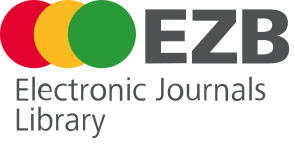Hygiene practices in childhood: a comprehensive approach from nursing
DOI:
https://doi.org/10.56294/nds2024122Keywords:
hygiene, nursing, childhood, self-care, preventionAbstract
The research focused on the importance of hygiene in childhood, understood as a set of essential practices for preserving individual and collective health. It highlighted that, from Florence Nightingale's contributions in the 19th century to the contemporary approaches of Leininger, Orem and Pender, nursing has recognised the influence of the physical, social and cultural environment on disease prevention. The study emphasised that children aged 9 to 12 were at a decisive stage in consolidating hygiene habits, being particularly vulnerable to gastrointestinal, respiratory and dermatological infections when these practices were not applied properly. It also showed that Nightingale's environmental theory remained valid today, as clean air, clean water and environmental hygiene continued to be determining factors in health. It was highlighted that Leininger's cultural perspective allowed for the design of educational strategies adapted to local contexts, while Orem's self-care model and Pender's health promotion theory emphasised autonomy and personal motivation for the adoption of healthy behaviours. The lack of hygiene, particularly hand washing, increased the transmission of preventable diseases. Therefore, it was stated that nursing played a key role as an educational and social agent, not only in clinical care, but also in the formation of sustainable habits in childhood. It was concluded that hygiene should be understood as a comprehensive practice that strengthened health, self-esteem, and equity in childhood.
References
1. Ávalos Tovar MB, Martel Mauricio JD. Hábitos de higiene de la madre y su relación con la parasitosis intestinal en niños menores de 5 años en el centro de salud Madre Teresa de Calcuta el Agustino 2021 [Tesis de Licenciatura]. 2021. Disponible en: https://hdl.handle.net/20.500.12692/70760
2. Bersano J, Mestre G, Blasi S. Adherencia al lavado de manos antes de comer en niños internados. Rev Pediatr Hosp Garrahan. 2017;30(2):45-53. Disponible en: https://www.medicinainfantil.org.ar/index.php/ediciones-anteriores/93-94-volumen-i/numero-4/404-adherencia-al-lavado-de-manos-antes-de-comer-en-ninos-internados
3. Hidalgo E. Abordaje de enfermería basado en el modelo de Nola Pender sobre hábitos del sueño. Ene. 2022;16(2):1322. Disponible en: http://scielo.isciii.es/scielo.php?script=sci_arttext&pid=S1988-348X2022000200010&lng=es&tlng=es
4. Hoffman. Buenas prácticas de higiene en la industria de alimentos y bebidas. Hoffman. 2024 mayo 7. Disponible en: https://hoffman-latam.com/blog/buenas-practicas-de-higiene-en-la-industria-alimentos-bebidas/
5. Lobártolo G. Conocimientos sobre el síndrome urémico hemolítico y las correctas prácticas de higiene y manipulación de los alimentos para su prevención, en madres, padres o cuidadores de niños menores a 5 años [Tesis doctoral]. Universidad de Concepción del Uruguay-CRR; 2022. Disponible en: http://repositorio.ucu.edu.ar/xmlui/handle/522/592
6. Muñoz Bazán LA, Pérez Rodríguez GE. Intervenciones de enfermería para la adquisición de hábitos de higiene en los escolares Escuela No. 12 Evaristo Vera Espinoza comuna El Morrillo Santa Elena 2012–2013 [Tesis de Licenciatura]. Universidad Estatal Península de Santa Elena; 2013. Disponible en: http://repositorio.upse.edu.ec/handle/46000/999
7. Naranjo Hernández Y, Concepción Pacheco JA, Rodríguez Larreynaga M. La teoría Déficit de autocuidado: Dorothea Elizabeth Orem. Gac Med Espirituana. 2017;19(3):89-100. Disponible en: http://scielo.sld.cu/scielo.php?script=sci_arttext&pid=S1608-89212017000300009&lng=es&tlng=es
8. Organización de las Naciones Unidas (ONU). La mortalidad infantil alcanza un mínimo histórico de 4,9 millones en 2022. Noticias ONU. 2024 mar 13. Disponible en: https://news.un.org/es/story/2024/03/1528322
9. Organización Mundial de la Salud (OMS). Dos de cada 5 escuelas del mundo carecían de instalaciones básicas para el lavado de manos antes de la pandemia de COVID-19, según UNICEF y la OMS. World Health Organization. 2020 ago 13. Disponible en: https://www.who.int/es/news/item/13-08-2020-2-in-5-schools-around-the-world-lacked-basic-handwashing-facilities-prior-to-covid-19-pandemic-unicef-who
10. Organización Panamericana de la Salud (OPS). La mortalidad infantil alcanzó un mínimo mundial histórico en 2022, según un informe de las Naciones Unidas. OPS. 2024 mar 13. Disponible en: https://www.paho.org/es/noticias/13-3-2024-mortalidad-infantil-alcanzo-minimo-mundial-historico-2022-segun-informe-naciones
11. UAEH Dirección de Servicio Médico Universitario. Higiene personal. Universidad Autónoma del Estado de Hidalgo. s.f. Disponible en: https://www.uaeh.edu.mx/adminyserv/dir_generales/serv_estudiantiles/direccion_servuniversitario/carteles_promocion_salud/higiene_personal.pdf
12. Valle A, Manrique L, Revilla D. La investigación descriptiva con enfoque cualitativo en educación. Pontificia Universidad Católica del Perú; 2022. Disponible en: https://repositorio.pucp.edu.pe/index/handle/123456789/184559.
Published
Issue
Section
License
Copyright (c) 2024 Jennifer Lizcano Ramírez , Elena Melissa Alava Montes , Griselda Esmeralda Vera Matute , Jenrry Fredy Chávez-Arizala (Author)

This work is licensed under a Creative Commons Attribution 4.0 International License.
The article is distributed under the Creative Commons Attribution 4.0 License. Unless otherwise stated, associated published material is distributed under the same licence.






